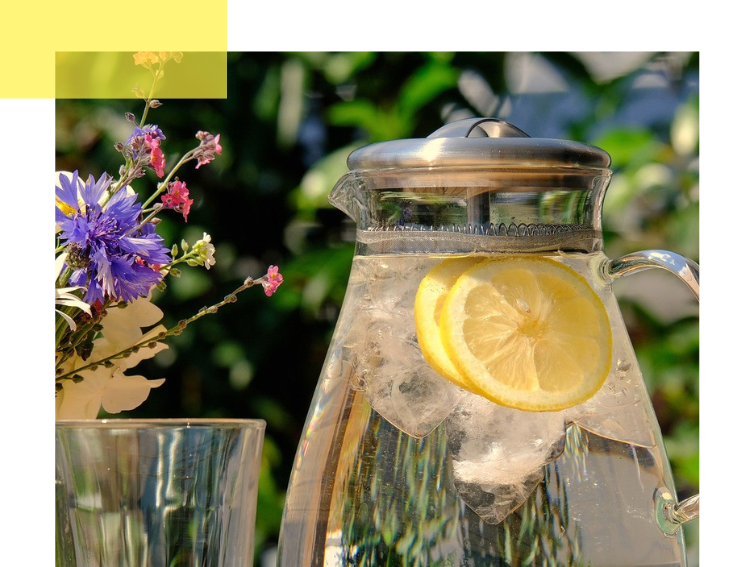Clean drinking water is a recognized human right.

… conserve and utilize resources and set clear guidelines
Water is one of the most precious resources we have. The United Nations’ sixth goal is all about access to clean water, sanitation, and sustainable water use. This goal can be incorporated into the event industry in many ways, from catering to restroom use.

When selecting venues, it’s important to consider how responsibly water and hygiene are handled: Is everything germ- and mold-free? Are there water-saving facilities in the restrooms? What cleaning agents are used, and are they environmentally friendly? Other important measures include minimizing hand contact through touchless fixtures and good ventilation.
The choice between disposable towels in dispensers and washable cotton towels seems trivial at a first glance – but it makes a huge difference when it comes to sustainability. The former are history after one wipe, while the latter experience entire careers in the event business with a little detergent. You probably don’t ask yourself how you can help the environment a little bit on your way to the restroom – but that’s often where it all starts: with fabric, soap, and a touch of responsibility.


A look at the water consumption is also worthwhile in the catering sector: Opting for regional and local plant-based dishes not only conserves resources but also saves a lot of “invisible water,” which is generated for instance while providing many animal products, as well as water-intensive fruits native to very dry regions, like Avocados for example. Drinks in chilled jugs or reusable bottles, avoiding unnecessary ice cube production, and responsible dishwashing—all of this can make a noticeable difference.









